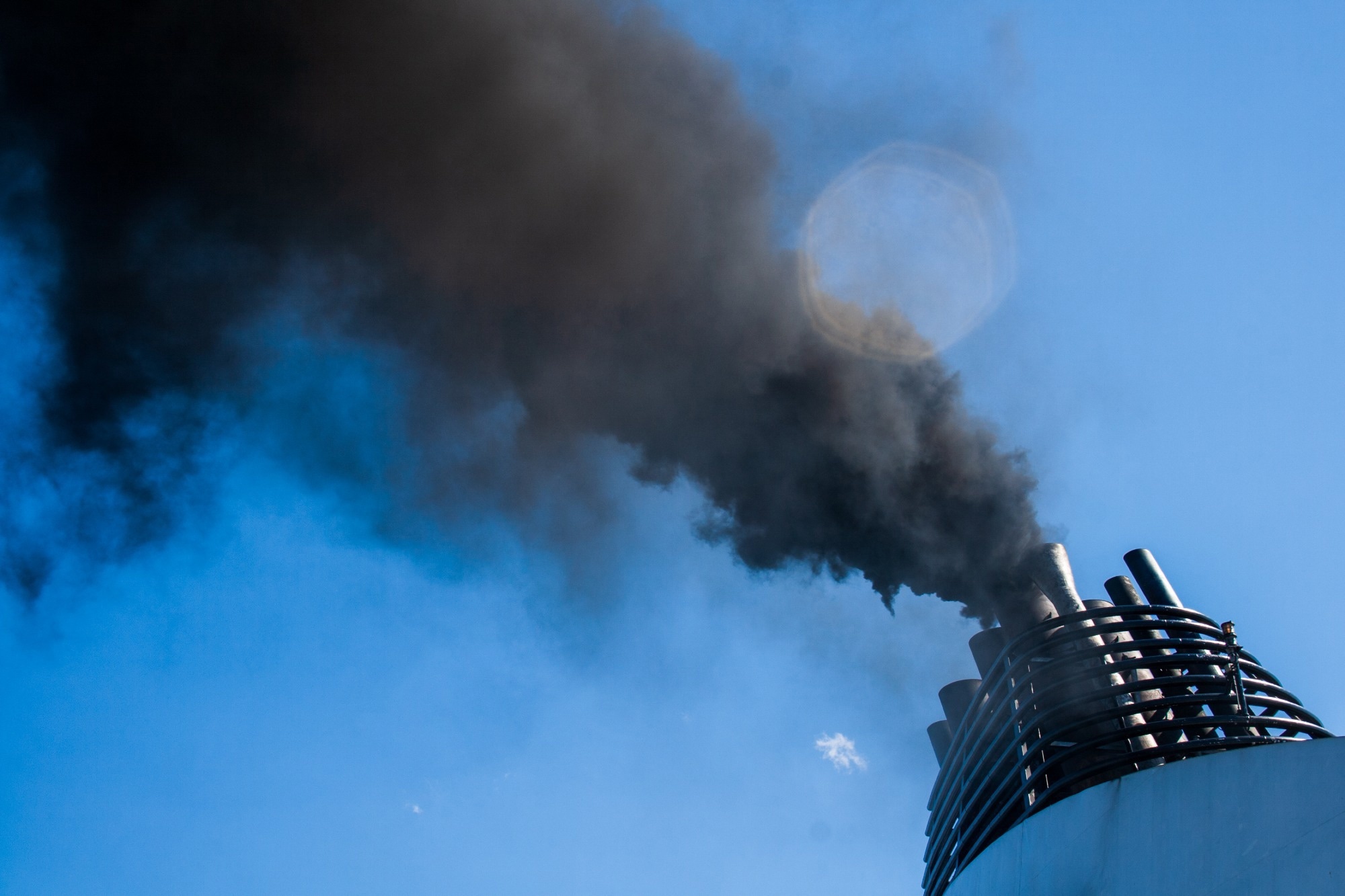To this end, they used a novel marker of BC exposure that helped quantify the internal black carbon load in whole blood using a detection method based on white light generation by carbon particles under pulsed illumination.
Additionally, the team estimated healthcare costs associated with air pollution exposure.
 Study: Pre-admission ambient air pollution and blood soot particles predict hospitalisation outcomes in COVID-19 patients. Image Credit: MicheleUrsi/Shutterstock.com
Study: Pre-admission ambient air pollution and blood soot particles predict hospitalisation outcomes in COVID-19 patients. Image Credit: MicheleUrsi/Shutterstock.com
Background
Epidemiological studies suggest that genetics and air pollution modulate disease outcomes by increasing patients’ susceptibility to COVID-19.
In vitro studies have shown that long-term exposure to particulate matter less than 2·5 µm in diameter (PM2.5) increases the expression of angiotensin-converting enzyme 2 (ACE2) and transmembrane protease serine-type 2 (TMPRSS2) proteins critical to severe acute respiratory syndrome coronavirus 2 (SARS-CoV-2) entry into host cells, a correlate of susceptibility to COVID-19.
Furthermore, several studies using patient-level data have demonstrated associations between long-term air pollution and hospitalization risk, ICU admission risk, and mortality.
However, there is a scarcity of cohort studies evaluating financial pressure on healthcare systems due to the prolonged hospitalization of COVID-19 patients.
Nonetheless, some recent studies showed that short- and long-term exposure to particulate and gaseous air pollution before hospitalization prolonged the duration of mechanical ventilation in non-COVID-19-infected critically ill patients, thus, raising the possibility that air pollution might be associated with COVID-19 disease severity as well.
About the study
In the present study, researchers recruited 328 hospitalized patients with reverse transcription-polymerase chain reaction (RT-PCR)-confirmed COVID-19 in Belgium between May 2020 and March 2021, of which 233 sought hospital admission, and 50 required ICU admission.
The team recorded their demographic and clinical characteristics and information on education and occupation. They used their blood and urine samples for biochemical and hematological measurements, including C-reactive protein (CRP) and absolute white blood cell count (WBC). The primary clinical study outcomes were the duration of hospitalization and the need for ICU admission.
Secondary endpoints included vasopressor usage and blood oxygen saturation. Further, the researchers collected data on parameters of comorbidity (Charlson Comorbidity Index) to identify patients at risk for further clinical deterioration.
Finally, they used multiple linear regression models to assess the association between predefined study outcomes and the internal black carbon load.
Results
The study population comprised 328 patients with an average age of 65.7 years, of which 148 were women, and they suffered from several comorbidities; for instance, 179, 73, and 63 had congestive heart failure, diabetes, and cancer, respectively.
The authors noted that for these individuals, even minimal improvements in air quality resulted in health gains of 40 to 80% from novel COVID-19 therapies, e.g.,remdesivir drug therapy.
These findings reinstate the urgency to reduce air pollution levels to improve respiratory health globally. Further, they noted that short- and long-term PM2.5, PM10, and NO2 exposure increased the duration of hospitalization roughly as much as a 10-year increase in age.
Notably, the average duration of hospitalization for the study cohort was 16.9 days, and patient age was the most potent demographic factor affecting it. Furthermore, on average, men had a longer duration of hospitalization than women (+3.99 days).
The distributed lag models (DLM) helped researchers identify that the week before hospitalization was the most significant time window for exposure to ambient air pollutants, e.g., PM2.5, BC, and NO2, associated with the duration of hospitalization.
Patient gender also modified the association between short-term PM2.5 exposure and the duration of hospitalization, with the effect being more pronounced in men than women, most likely because underlying comorbidities are more prevalent in men than women, albeit other biological factors might also be involved.
The effects of ambient PM2.5 and PM10 remained significant for short-term exposure to air pollutants (the average exposure seven days before admission to the hospital), whereas that of black carbon exposure remained significant for long-term exposure in the mutually adjusted study models.
Moreover, they noted an association between long-term exposure and the odds of ICU admission. An interquartile range (IQR) increase in long-term NO2, and BC exposure was correlated with an odds ratio of 2.54 and 2.26, respectively.
Furthermore, an IQR increase in the mean NO2 exposure seven days before hospital admission increased the odds of ICU admission, with OR=2.06.
Conclusions
To summarize, the study findings favor the concept that even minimal air pollution was detrimental for hospitalized COVID-19 patients, which overburdened hospitals and increased healthcare costs during the pandemic.
Another remarkable discovery was that improving air quality would roughly amount to 50% of the effect conferred by novel clinical interventions for COVID-19.
In the future, studies should validate these observations regarding COVID-19-related hospital outcomes besides evaluating the effect of air pollution on long-COVID. In addition, studies should explore the impact of air pollution on ACE2 receptors, especially from the perspective of disease progression.